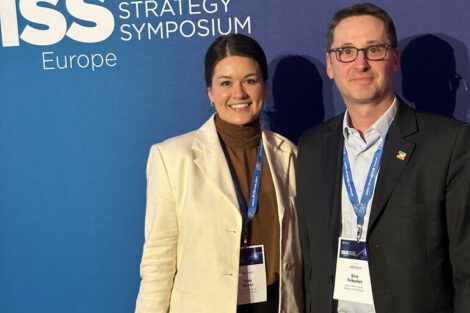Gerhard B. Wolski
No doubt, Europe’s economy has gotten into a very bad state, and the prospects of quickly getting out of this mess aren’t terribly good. Many of the governments in the European Union, especially in the common-currency club, blame the weak world and US economy, respectively, for their faults and failings in the world of finances and national economy, instead of using there specific will and power to lighten the situation for their fellow citizens and tax payers. Frankly, the inadequate brainpower and innovative will in most of these EU administrations are apparently limited to actions of finding ways of raising money by even higher taxes and other nasty schemes. Practically all of these countries have developed almost perfect systems of social security over the years, and now it turns out these over-developed systems cannot longer be financed to cover all these risks as before.
Paying and paying even more again for all these social achievements isn’t encouraging at any rate, where the actual income for the common man constantly decreases, and the health insurance system, for example, doesn’t provide the same efficiency as before, but creates constantly higher costs. We will not have to get rid of all the social amenities in Europe, but we have to cut back or at least to stabilize our expenses for welfare. All these achievements have a long and founded history, and political parties as well as unions have fought for them. Now we have arrived at the crossroads: neither the current generation nor their offspring can afford thesepersistently growing expenses.
The tremendously high costs of social services have put elevated obligations on all of us, the individuals, the families and the companies. In addition, unemployment has reached alarming heights, burdening the social system even more, and budgets in EU countries are gliding deeper and deeper into imbalance. With the exception of the small countries, Luxembourg and Finland, which are in a budget-plus by more than 3%, there is a range of countries not touching the minus 1% limit, and finally those in the rear (Italy, France, Germany and Portugal), with deficits of from 2.5 to up to 3.3%. Therefore, the discussion in the EU is now about budget deficits, the stability of the euro, and other pressing financial issues. All these conflicts have rendered a vicious circle, which in turn results in a dramatic business climate, and has dominant impact upon all of us.
Under these circumstances, investments in high-tech projects have been also at least postponed, put off or- even worse – simply cancelled. Take, for example, the megalomania-auction for the UMTS licenses in Germany two years ago. It ended with an unbelievable record of about euro50bn for the Secretary of Treasury. Telecoms from Germany, Finland, France, Spain and Hong Kong were involved, the latter then withdrawn as the value of a single license topped reasonable altitudes. Soon it became apparent that this was not a good deal at all, since the telecoms now can score super losses in their annual reports, and naturally not have the money needed to invest in the badly required 3G infrastructure. And the whole muddle is overlaid by the stepwise crash on the stock exchange, and by the turmoil in banking and insurance businesses. The question is: who should finance the assembly of UMTS infrastructure, when even the money institutes (traditionally the industry’s financiers) are themselves in deep trouble? And best of all: between some UMTS consortia (German/French, Finish/Spanish) there have been a lot of difficulties now, and a Finish licensee says that bidding for this 4bn-permit was the biggest error ever having led to him having to write-off the sum.
But the European disaster has not only one name. The others stem from IPOs brought into the stock markets with erratic business plans from banks who today would not even touch those worthless papers. Not to be forgotten are those company founders who were never seriously working with the money of their investors, be they gamblers, fools or criminals. It’s a million of common shareholders who have lost their trust in all sorts of stocks. Spending more than 50% of our income for taxes and the social system (but ever more reduced return), ever more increasing costs for labor in the industry (drastically minimizing competitiveness), and the problems with stock exchange, banks, life insurance and bankruptcy companies – Europe is in a serious economical decline and has to find its way out.
Share:









